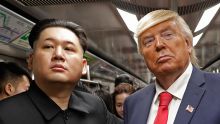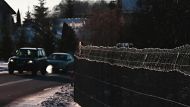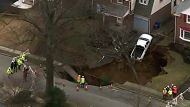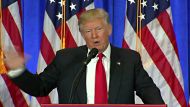Washington: We expected a blizzard of policy directives from the Trump White House. But even by the standards of the new US President, the Wednesday demand for a "major investigation" of voter fraud comes out of left field.
By sundown, one of Trump's daughters, his campaign chief and his would-be treasury secretary were shaping as chief suspects – all three of them having registered to vote in two states.
More World News Videos
Trump to investigate voter fraud
President Donald Trump, still claiming voter fraud cost him the popular vote despite a lack of evidence, tweeted that he is calling for an investigation into the matter.
Trump can't hide his feelings. So we know he is consumed by the fact that election loser Hillary Clinton beat him by almost three million in the popular vote. How dare the people let him down in such fashion? No coincidence either that in his latest telling of this insult, in which he claims that but for fraud he could have won the popular vote, the guilty number three to five million.
So there he was, the most powerful man in the world, wandering the corridors of the White House in the middle of the night, at 4.10am no less, firing off tweets to soothe his injured ego: "I will be asking for a major investigation into VOTER FRAUD, including those registered to vote in two states, those who are illegal and ... even, those registered to vote who are dead (and many for a long time). Depending on results, we will strengthen up voting procedures!"
Before hitting the send button he didn't stop to think of the implications of what he was doing for a very different kind of electoral fraud – the scam which has seen Republican-controlled states use bogus claims of voter fraud for a never-ending campaign of voter suppression - attempting, with some success, to rob hundreds of thousands of Americans of their right to vote.
Repeated studies and investigations have found that genuine voter fraud – either multiple voting by a single person or voting in the name of the dead – is virtually non-existent. But GOP-controlled state legislatures have been able to sweep them aside as they demand voter ID and other requirements that make voting more difficult for minorities, the poor and the elderly - all demographics that tend to vote Democrat.
There's a real likelihood that this "major investigation" will not get off the ground. Republicans are bound to fear that the mountain of existing evidence to the contrary, an army of electoral law experts and an inevitable parade of victims of GOP shenanigans will so bury Trump's absurd claims that the Republicans will never be able to cry "voter fraud" again.
Either that or the investigation is to be a feint through which Trump believes he can invent a bogus case to act on the urging of some around him, like PayPal billionaire Peter Thiel, who believe that too many people have been given a vote and that democracy needs to be shrunk to protect the interests of those with wealth and property.

We already knew that Trump's campaign chief and White House strategist Stephen Bannon was registered to vote in both Florida and New York. But, according to news reports, Tiffany Trump and treasury secretary nominee Steve Mnuchin also have double registration, as do several million Americans who have moved house and not gotten around to tidying up their registration – but there is no evidence of them double voting.
In the weeks after the 2016 election, before which Trump and his minions complained constantly about fraud and rigging, The Washington Post did a thorough analysis of news reports from around the country on fraud – and came up with four instances among 136 million votes cast.
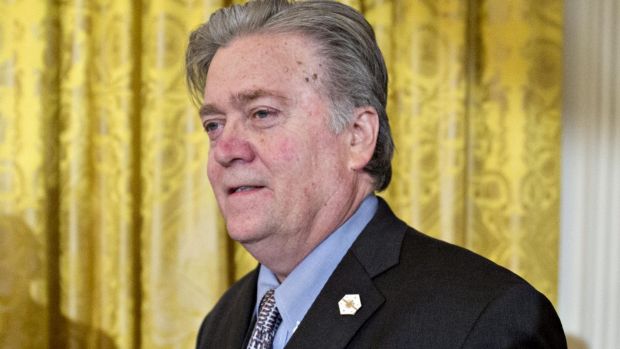
Two of the four were Trump voters trying to vote twice. Another was a Republican election judge attempting to complete a ballot for her dead husband and the fourth was a poll worker - party affiliation not specified - who attempted to cast a dodgy absentee vote in a local mayoral election in Florida.
By Wednesday evening, Trump stood alone on the burning deck.

In the absence of any support from prominent Republicans, House Speaker Paul Ryan stated unambiguously that there was no evidence of fraud and even the President's hapless press secretary, Sean Spicer, took a step back – rather than insist that there was truth in the boss' claim, he squeaked out that this was something that Trump had "long believed".
The National Association of Secretaries of State — the elected officials responsible for conducting elections from state to state and most of whom are Republican — said boldly in a statement: "[We are] not aware of any evidence that supports the voter fraud claims made by President Trump."

And former Arkansas governor Mike Huckabee, a Trump supporter, told Fox Business Network he was mystified as much by Trump's claim about illegal voters as by his motivations for bringing it up: "I have no evidence whatsoever, and I don't know that anyone does, that there are that many illegal people who voted … and frankly it doesn't matter. He's the President, and whether 20 million people voted, it doesn't matter anymore."
"What does it mean for democracy?" CNN's Jeff Zeleny asked at a White House briefing, during which Spicer misrepresented the findings of earlier investigations that had come up empty-handed.
"It means I've answered your question," Spicer responded, and moved on.
The last Republican president, George W. Bush, had a crack at investigating voter fraud and came up empty-handed – it found "virtually no evidence of any organised effort to skew federal elections", The New York Times reported.
Perhaps the most comprehensive investigation, by Justin Levitt of Loyola Law School in Los Angeles, found just 31 credible instances of voter impersonation in more than 1 billion votes cast at US elections between 2000 and 2014 – that's a ratio of one fraud for each 32 million votes.
Researchers at Dartmouth College looked for statistical fingerprints of fraud, comparing vote totals to county deaths and non-citizen populations in the aftermath of the 2016 election, and found that "voter fraud concerns fomented by the Trump campaign are not grounded in any observable features of the 2016 presidential election".
Trump claimed on the hustings that the only way he could lose Pennsylvania was by fraud - he won the state. More importantly, in trying to head off a recount of the vote in Michigan, Trump's lawyers wrote: "All available evidence suggests that the 2016 general election was not tainted by fraud or mistake."
Yet in casting doubt on the election, Trump renders the whole process suspect – including the credibility of his own position as legitimate occupant of the White House.
The man who campaigned on lies is now attempting to run the country on them.

